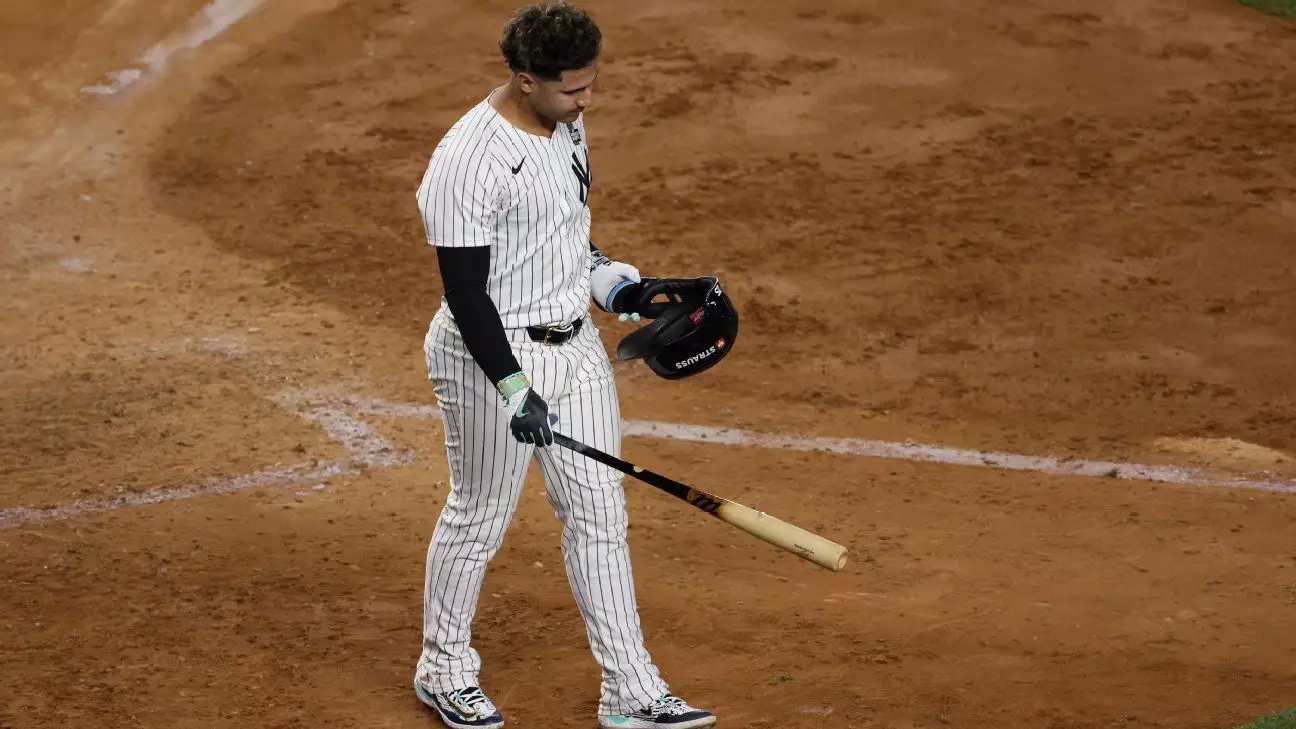The New York Yankees, a franchise synonymous with baseball excellence, find themselves in an unprecedented quagmire as they face a daunting 3-0 deficit in the World Series against the Los Angeles Dodgers. Not since 2004 has a team come back from such a seemingly insurmountable hole in baseball history, and the odds are not in favor of the Bronx Bombers. The pressure is palpable, with fans and analysts alike scrutinizing every aspect of the game. The Yankees, once a formidable powerhouse, must summon a triumph that has never been achieved in the sport’s grandest stage or risk going down in the annals of baseball for all the wrong reasons.
Game 3 at Yankee Stadium served as a microcosm of the Yankees’ struggles. Despite being the American League champions and leaders in runs scored during the regular season, their offensive prowess has evaporated when it matters most. The juxtaposition between their regular-season performances and their current predicament raises incredibly valid questions about consistency and composure under pressure. At just seven runs over three games, the team’s offensive output is disheartening; the remark that “all it takes is one swing” rings particularly hollow when discussing a team that has continually faltered when the stakes are maximized.
A glaring factor in this offensive inconsistency is the play of their star center fielder, Aaron Judge. To understand the gravity of this situation, one must recognize that Judge was a dazzling force during the regular season, garnering MVP accolades and showcasing why he is a fan favorite. However, throughout this World Series, he has struggled immensely, collecting only one hit in twelve at-bats while piling up a staggering seven strikeouts. This alarming statistic is not merely a reflection of Judge but also a symptom of the entire Yankees’ roster, which seems to crumble under the glow of October’s spotlight.
Judge himself has openly acknowledged the weight of his underwhelming performance, expressing disappointment and determination to improve. Yet, what remains to be seen is whether his personal accountability translates into tangible results on the field. The psychological toll of failure looms large, and as Judge carries the hopes of a well-heeled franchise, the overarching question is whether he can reclaim the form that saw him dominate the regular season.
Game 3 was laden with missed opportunities and pivotal moments that turned the tide against the Yankees. The franchise has not held a lead in the series since the dramatic moments of Game 1, and the trend continued when the Yankees encountered immediate setbacks due to hitting snafus and defensive blunders. Clarke Schmidt was tasked with a crucial start; however, he faltered significantly, allowing the Dodgers to seize momentum that they never relinquished. Walking Shohei Ohtani and then giving up a two-run homer to Freddie Freeman wrote the wrong script for the Yankees from the outset.
Losses tend to compound when teams fail to capitalize on scoring opportunities, and the Yankees exemplified this plight by leaving a staggering 25 runners on base through three games. The inability to drive runners in has fortified the feeling that they are trapped in a self-perpetuating cycle of failures. Relying merely on the occasional stellar play or a rogue hit to change their fate seems increasingly desperate. As witnessed in their crushing Game 3 loss, including questionable sends and strike calls, the Yankees need to not only regroup mentally but also recalibrate their strategy when it comes to aggressive base running and in-the-moment decisions.
With the season hanging by a thread, the Yankees must head into Game 4 with a renewed sense of purpose. Rookie Luis Gil takes the mound with the daunting task of harnessing early leads to relieve the pressure on a beleaguered offense. The strategy should pivot towards fostering a culture of proactive hitting, generating runs, and addressing on-field decision-making with precision. The “resilient” nature that Cortes alluded to is vital; the team must embody collective tenacity to mount any semblance of a comeback against the historically formidable Dodgers.
Despite the grim statistics, hope remains—the Yankees’ storied history is rich with instances of resilience. With the right mindset and tactical adjustments, they might just rewrite the narrative that seems predetermined. The beauty of baseball lies in its unpredictability, and while some may deem this series as virtually over, the legacy of the Yankees could yet serve as a powerful testament to seizing moments in the face of adversity. After all, in a sport that thrives on stories, the most improbable turnaround could just be waiting to be penned as the franchise looks to defy history itself.


Leave a Reply